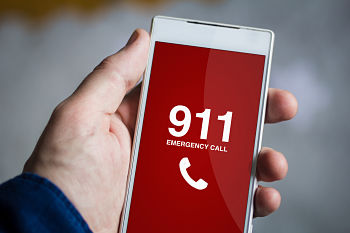Most of us have had a bad day at work. And that can affect our ability to do our jobs properly. But is failing to do your job a misdemeanor offense? It can be if you work for the Houston Emergency Center (HEC).

At least, that was the conclusion of the Texas First District Court of Appeals in a recent case, Williams v. State, where prosecutors charged a former 911 operator at the HEC with violating a fairly obscure state law that makes it a Class A misdemeanor to “interfere with an emergency request for assistance.”
Here is a brief explanation of what happened. The defendant was employed as a “telecommunicator” by the HEC, i.e., a person who accepts and routes emergency calls to Houston’s 911 system. According to the defendant’s former supervisor, she started to notice the defendant was having “call-handling issues.” The defendant also failed to meet her required hours “due to excessive breaks.”
The supervisor began to monitor the defendant’s performance more closely. One day, according to 911 records, the defendant hung up on the same 911 call twice. The caller was attempting to report a robbery in progress to the Houston Police Department (HPD). The supervisor decided to report the defendant’s conduct “up the chain.”
The HPD’s Internal Affairs Division then initiated its own investigation of the defendant. The defendant admitted to police that she was “hanging up on callers that were calling in” and that she “had some personal issues she was going through,” which made her not want to deal with those callers.
Prosecutors eventually charged the defendant with violating Section 42.062 of the Texas Penal Code, which states a person is guilty of a misdemeanor if she “knowingly prevents or interferes with another individual’s ability to place an emergency call or to request assistance.” A jury convicted the defendant of this charge, and the trial court imposed a sentence of 18 months probation in lieu of a year in jail.
On appeal, the defendant argued the evidence did not support her conviction. She maintained Section 42.062 was not even designed to cover 911 operators hanging up on callers. Rather, the law was meant to “protect against angry boyfriends smashing the phone or grabbing the phone from someone’s hand” so they could not call 911 in the first place.
The First District disagreed with the defendant’s interpretation of the law and upheld her conviction. Theappeals court noted the Penal Code only requires proof someone “prevents or interferes with” an emergency call. This is not limited to a physical act of interference, such as smashing a phone. Nor does it require proof the defendant’s actions were a “complete and indefinite foreclosure of the victim’s ability to request assistance.”
Speak with a Houston Misdemeanor Crimes Defense Lawyer Today
Anytime the police question you, even in the context of reviewing your job performance, you need to treat it as a potential criminal matter. Your first step should be to contact a qualified Houston criminal defense attorney who will help protect your rights. Call the Law Offices of Tad Nelson & Associates today at (281) 280-0100 if you need to speak with a lawyer right away.